
My series, "The 50," is back.
Each week, I share the story and lessons of a top 50 largest company in the world.
This $215 billion company paved the way for modern software & modern CSR.
Let's dive in 👇
Each week, I share the story and lessons of a top 50 largest company in the world.
This $215 billion company paved the way for modern software & modern CSR.
Let's dive in 👇
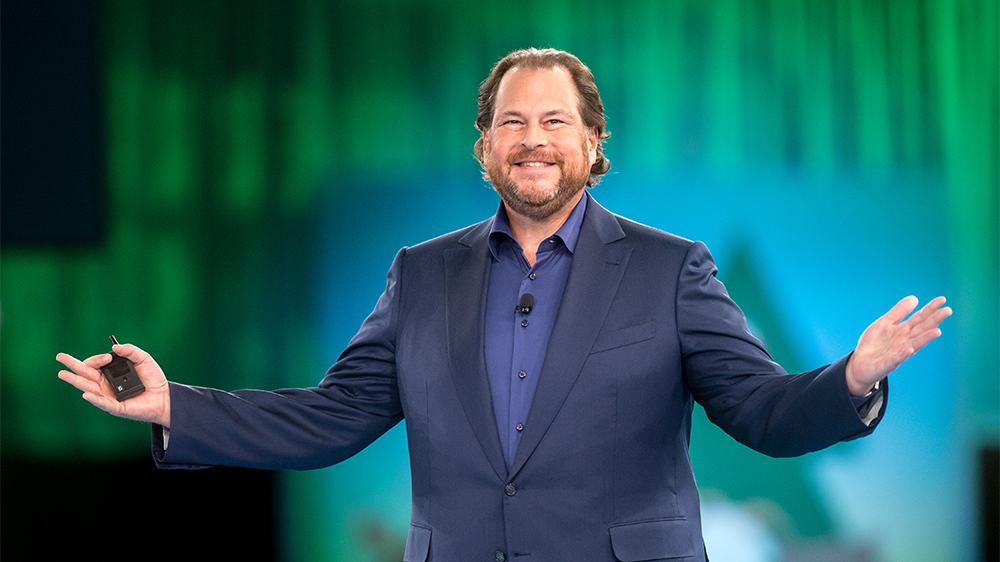
Salesforce is the #1 CRM platform in the world.
$215 billion company.
Over 50,000 employees.
$21.3 billion in 2021 FY revenue.
The company is massive.
$215 billion company.
Over 50,000 employees.
$21.3 billion in 2021 FY revenue.
The company is massive.
And it all starts with Marc Benioff (@Benioff).
Marc is the most visible of Salesforce’s four founders.
He is CEO & Chairman and has been part of the business since its founding in 1999.
Marc is the most visible of Salesforce’s four founders.
He is CEO & Chairman and has been part of the business since its founding in 1999.

In college, Marc secured internships with Apple as a programmer in its Macintosh division, where he met Steve Jobs.
The two became close friends.
So much so, that Benioff says Salesforce would not exist if it weren't for Jobs.
The two became close friends.
So much so, that Benioff says Salesforce would not exist if it weren't for Jobs.
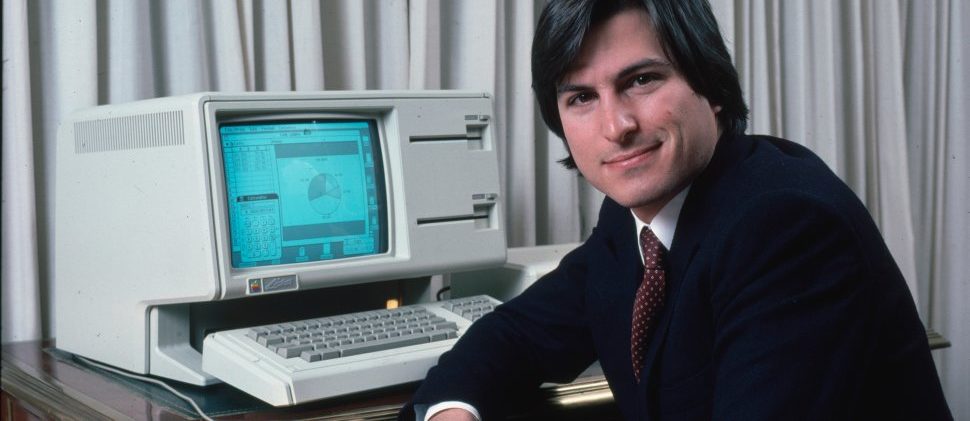
At the behest of his professors, Marc did not join Apple post-college.
Instead, he joined Oracle to get more customer-oriented work experience.
At 23, he was named Oracle’s Rookie of the Year.
At 26, he was promoted to Vice President.
Instead, he joined Oracle to get more customer-oriented work experience.
At 23, he was named Oracle’s Rookie of the Year.
At 26, he was promoted to Vice President.
13 years later, Marc's ready for a new challenge.
During a sabbatical the seeds of Salesforce are planted.
Marc came up with the idea while (no joke) swimming with dolphins in Hawaii.
Inspired by his previous role at Oracle, he wanted to bring CRM to the internet age.
During a sabbatical the seeds of Salesforce are planted.
Marc came up with the idea while (no joke) swimming with dolphins in Hawaii.
Inspired by his previous role at Oracle, he wanted to bring CRM to the internet age.
Marc coined his concept “The End of Software.”
The idea: introduce an on-demand software model, where information lived in the cloud not a local server.
Less expensive, more flexible.
It was this idea that acted as the foundation for Salesforce.
The idea: introduce an on-demand software model, where information lived in the cloud not a local server.
Less expensive, more flexible.
It was this idea that acted as the foundation for Salesforce.
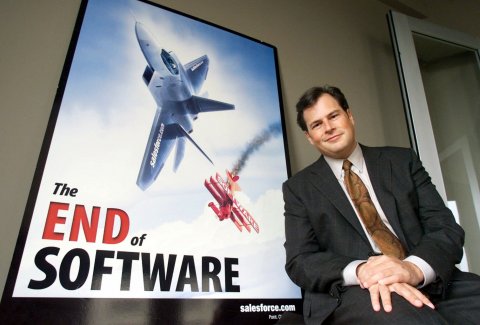
March 8th, 1999, Marc Benioff and 3 co-founders incorporated Salesforce.
They began working on V1 of its CRM product in a rented one-bedroom apartment on San Francisco’s Telegraph Hill.
They began working on V1 of its CRM product in a rented one-bedroom apartment on San Francisco’s Telegraph Hill.
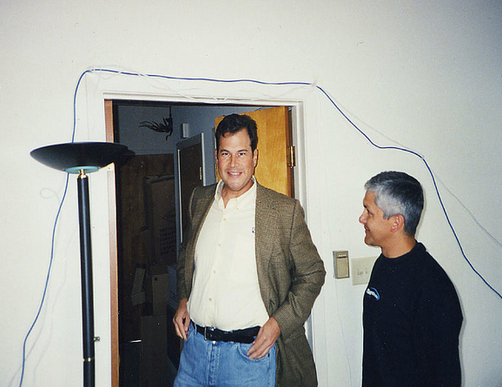
Salesforce laid the foundation for long-term success on Day 1.
V2MOM, a Marc Benioff creation, was implemented at the start to plan, set goals, and maintain direction.
V2MOM = visions, values, methods, obstacles, measures.
Think OKRs, EOS, or other management systems.
V2MOM, a Marc Benioff creation, was implemented at the start to plan, set goals, and maintain direction.
V2MOM = visions, values, methods, obstacles, measures.
Think OKRs, EOS, or other management systems.

Beyond V2MOM, Salesforce made culture the #1 priority.
Inspired by Hawaii, Marc borrowed the concept of Ohana (or family) at Salesforce.
He made sure the co's Ohana included everyone, not just employees.
22 years later: Salesforce has an award-winning culture & CSR effort.
Inspired by Hawaii, Marc borrowed the concept of Ohana (or family) at Salesforce.
He made sure the co's Ohana included everyone, not just employees.
22 years later: Salesforce has an award-winning culture & CSR effort.

But that doesn’t just happen by chance.
The company has been practicing culture for 22 years.
In the early days, the team wore Hawaiian print shirts & appointed @Benioff's dog Koa, Chief Love Officer.
Also, the team launched 1-1-1, a now-famous model of giving on Day 1.
The company has been practicing culture for 22 years.
In the early days, the team wore Hawaiian print shirts & appointed @Benioff's dog Koa, Chief Love Officer.
Also, the team launched 1-1-1, a now-famous model of giving on Day 1.
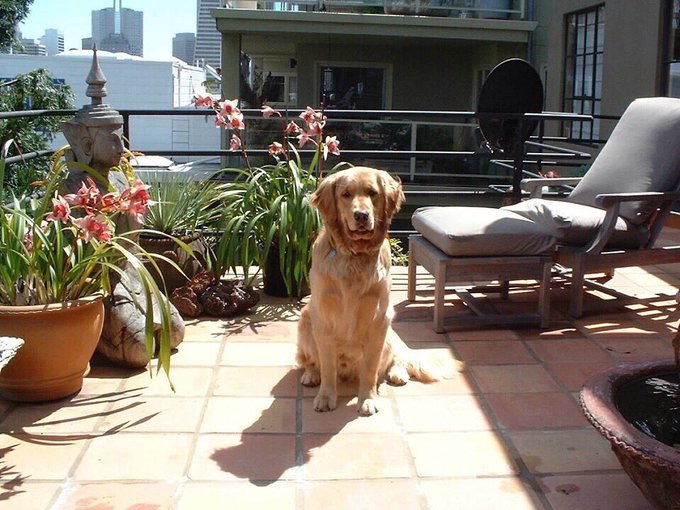
Now, let's talk about growth.
I think about Salesforce's trajectory in three stages:
1) Category Creation
2) Platformization
3) Product Expansion
I think about Salesforce's trajectory in three stages:
1) Category Creation
2) Platformization
3) Product Expansion
Stage 1 was about creating a new category.
And that was software-as-a-service (SaaS).
No massive servers in your office.
No need to download software locally.
Just a computer, the internet, and applications on top of it.
And that was software-as-a-service (SaaS).
No massive servers in your office.
No need to download software locally.
Just a computer, the internet, and applications on top of it.
And with category-defining technology, the company scaled from 4 co-founders in an apartment to $176 million in revenue within 5 years.
In year 5, Salesforce went public on the NYSE under the very fitting ticker of CRM.
In year 5, Salesforce went public on the NYSE under the very fitting ticker of CRM.

Beyond the tech, Salesforce has 2 marketing strategies to thank for its early growth.
Guerilla marketing: the co staged mock protests outside competitors's conferences
Product-based marketing: the co invented the freemium model where five users got the product for free
Guerilla marketing: the co staged mock protests outside competitors's conferences
Product-based marketing: the co invented the freemium model where five users got the product for free
That brings us to Stage 2 of growth.
As Salesforce shepherded cloud computing, other companies followed suit.
More competition = new company strategy
Benioff decided to turn Salesforce into a platform.
Rather than fight competition, he invited it.
As Salesforce shepherded cloud computing, other companies followed suit.
More competition = new company strategy
Benioff decided to turn Salesforce into a platform.
Rather than fight competition, he invited it.
Enter AppExchange.
Starting in 2005, third-party developers could create apps on top of Salesforce and sell them to users.
It created a virtuous cycle.
More apps --> more users join platform --> more developers join
It also opened up a new revenue stream for Salesforce.
Starting in 2005, third-party developers could create apps on top of Salesforce and sell them to users.
It created a virtuous cycle.
More apps --> more users join platform --> more developers join
It also opened up a new revenue stream for Salesforce.
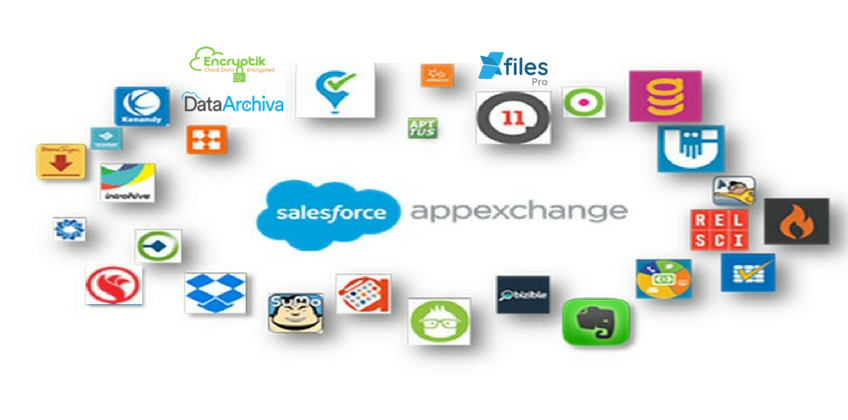
Platform-as-a-service was a strategy that built community & network around the CRM and drove continued growth in adoption.
This stage lasted roughly until 2010.
By then, Salesforce was doing $1.3 billion in revenue across 72,500 paying customers.
This stage lasted roughly until 2010.
By then, Salesforce was doing $1.3 billion in revenue across 72,500 paying customers.
The third and final stage of Salesforce's growth—which we are still in—is product expansion.
Over the years Salesforce has become a market leader in CRM.
But now as the incumbent, Salesforce must find ways to grow rapidly in the face of competition and a more mature business.
Over the years Salesforce has become a market leader in CRM.
But now as the incumbent, Salesforce must find ways to grow rapidly in the face of competition and a more mature business.
It has fanned out into everything from Marketing to Business Intelligence...
Through two types of innovation:
Organic = internal products
i.e. Chatter & Einstein
Inorganic = acquisitions
i.e. Heroku & Tableau
It's made 64 acquisitions in 10 years.
Through two types of innovation:
Organic = internal products
i.e. Chatter & Einstein
Inorganic = acquisitions
i.e. Heroku & Tableau
It's made 64 acquisitions in 10 years.

That brings us to today.
Today, Salesforce is the 46th largest company in the world with a $215 billion market cap.
Benioff is at the helm of a 50,000-employee workforce, which drove $21.3 billion in 2021 revenue.
But beyond its size, 3 things impress me about this story.
Today, Salesforce is the 46th largest company in the world with a $215 billion market cap.
Benioff is at the helm of a 50,000-employee workforce, which drove $21.3 billion in 2021 revenue.
But beyond its size, 3 things impress me about this story.
FIRST: Salesforce seeded its culture and values on Day 1.
From emphasis on Ohana to the 1% program, Salesforce’s award-winning culture is like a redwood tree that has been sprouting for 22 years.
From emphasis on Ohana to the 1% program, Salesforce’s award-winning culture is like a redwood tree that has been sprouting for 22 years.
SECOND: Planning & direction can't start too early.
Salesforce implemented V2MOM on Day 1.
It’s a simple framework, but it was key to keeping the company aligned and communicating clearly through the 3 stages of growth.
Salesforce implemented V2MOM on Day 1.
It’s a simple framework, but it was key to keeping the company aligned and communicating clearly through the 3 stages of growth.
THIRD: Reading the room in business is key to survive and thrive.
Business isn't about building in a silo.
It's about staying focused, while remembering to lift your head up and gauge your environment, trends, and competition around you.
Salesforce was masterful at this.
Business isn't about building in a silo.
It's about staying focused, while remembering to lift your head up and gauge your environment, trends, and competition around you.
Salesforce was masterful at this.
Thanks for reading!
If you want to see future episodes of The 50 (largest companies in the world), follow me on Twitter!
twitter.com/businessbarista
If you want to see future episodes of The 50 (largest companies in the world), follow me on Twitter!
twitter.com/businessbarista
If you want the full story & all the lessons about Salesforce, check out my recent Founder's Journal (🎧 ) all about the business...
Listen on Apple: apple.co/3gfMw23
Listen on Spotify: spoti.fi/3gaVfT4
Listen on Apple: apple.co/3gfMw23
Listen on Spotify: spoti.fi/3gaVfT4
If you want to check out my first thread of "The 50" here is my breakdown of Pinduoduo.
What an incredible story:
What an incredible story:
https://twitter.com/businessbarista/status/1378862597043261441?s=20
• • •
Missing some Tweet in this thread? You can try to
force a refresh


